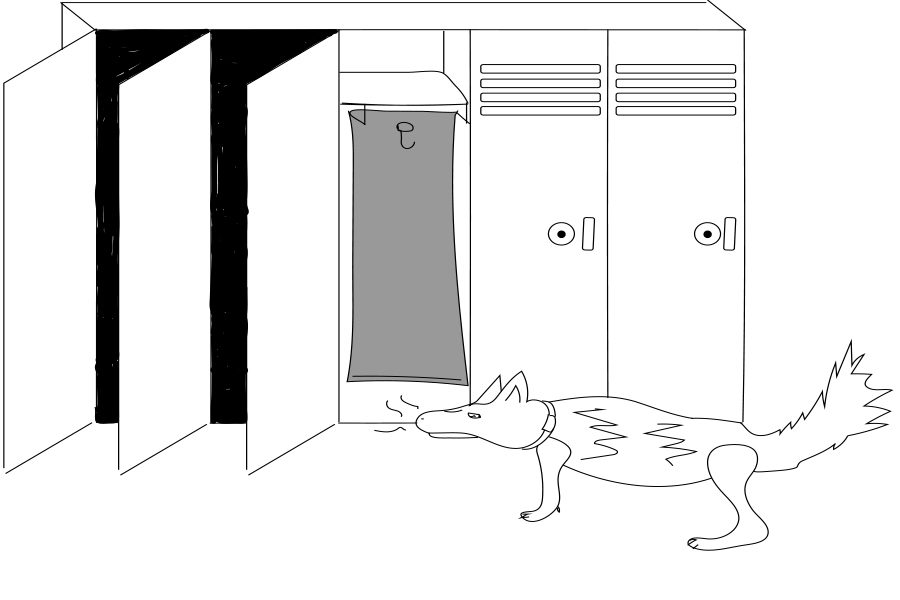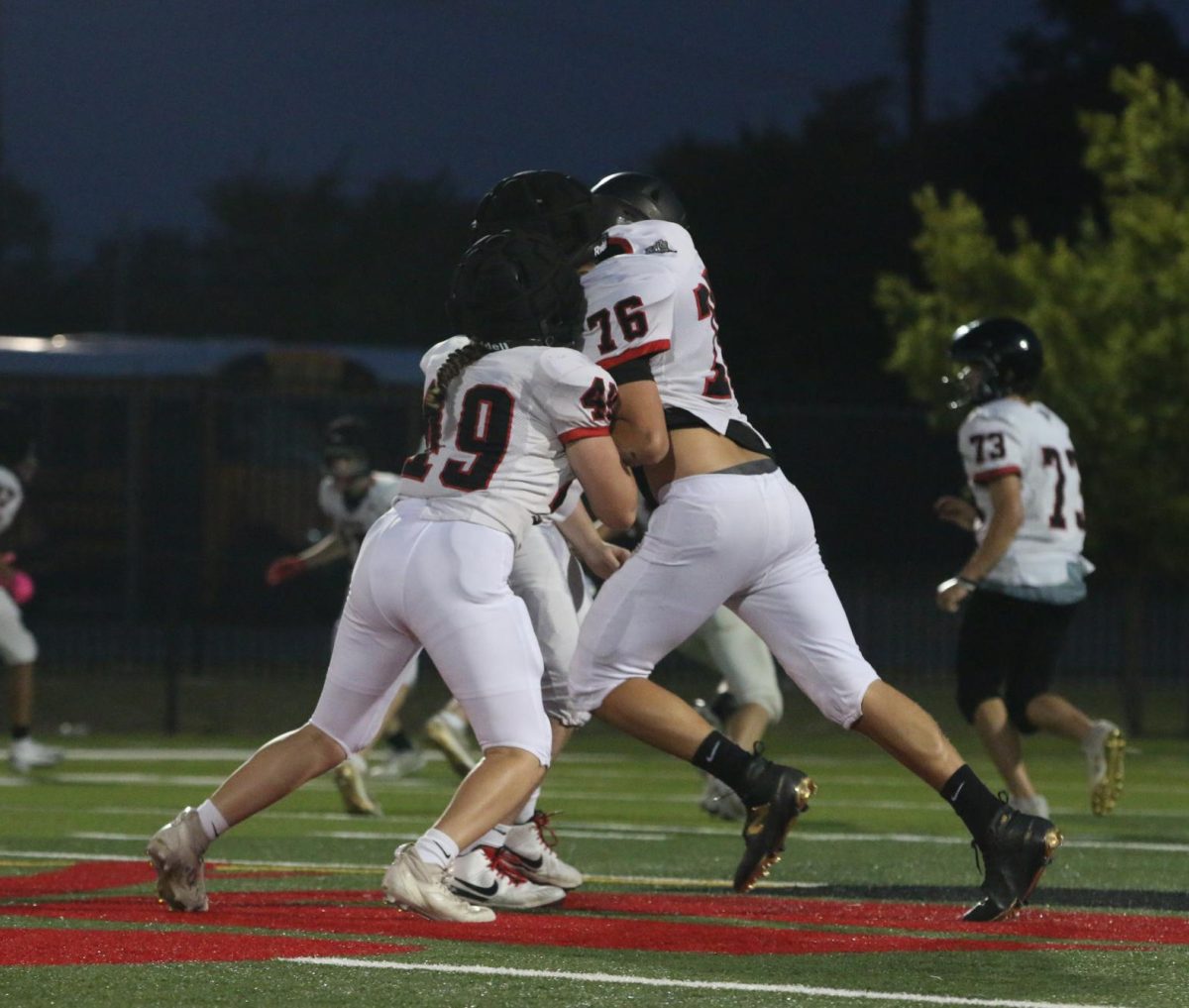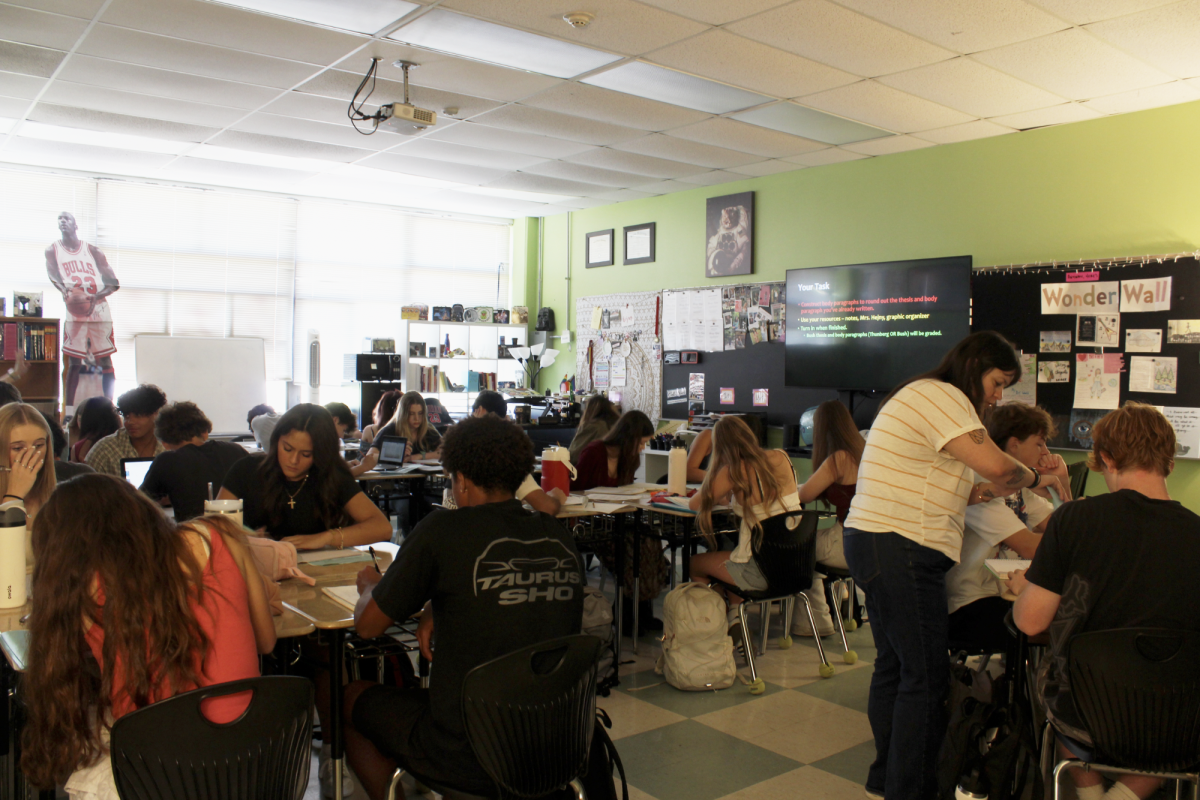Drug dog investigations have students feeling as though their rights are being violated at school
April 23, 2016
The American flag stands gallantly above the revered and noble school as if justly being guided by the Constitution itself. Education is a fundamental component to our democracy. It allows us to explore, understand, and thrive in our society.
So why does a place of education, whose goal it is to better prepare students for the world and promote the ideals of democracy take away students constitutional rights? An institution intended to enrich and better the lives of students should never detract from that role when punishing students, especially with the assisted use of police as school disciplinarians.
According to the AISD student code of conduct, district officials may not only conduct searches without a warrant, but can also search any student’s vehicle without that student’s permission as “Vehicles parked on school property are under the jurisdiction of the school,” utterly disregarding the fourth amendment.
Another major ramification of the code of conduct is the removal from campus to Disciplinary Alternative Education Program (DAEP). According to the handbook a student may be sent to DAEP for numerous offenses like “selling, giving, delivering, possessing, using, or being under the influence of marijuana, a controlled substance, or dangerous drug in an amount not constituting a felony offense.” Under Texas law four ounces or more of marijuana is considered to be a felony offense. As stated above, students can be sent to DAEP for a non-felony offense, one that if they were caught in the real world would most likely result in a citation and the underage person being escorted home.
The problem is the effect this can have on students. Students sent to Alternative Learning Center (ALC) can quickly fall behind on classwork, lessening their understanding and overall education.
That’s why I believe the DAEP should be a punishment saved only for severe cases such as students considered a threat to the school, the well-being of students, or themselves. All other minor behavioral offenses should be dealt with justly. Students who break the code of conduct should be punished, but in a more effective way, a way that doesn’t negatively effect their education or hinder student growth.
With growing concerns over school safety, police officers are being assigned to monitor schools in record numbers. According to the National Center for Education Statistics there are more than 43,000 school resource officers and other sworn police officers working in the nation’s 84,000 public schools.
Although the heightened security is a positive step towards school safety it also raises multiple concerns like the criminalization of common teenage behaviors, discriminatory enforcement of vague laws, and use of excessive force in schools where students should feel safe.
School safety is crucial and I support the strengthening of effective security. School is a place of learning and growing, therefore by definition a school should be a place of safety and guidance to students.
However, the current rules and handling of student offenses is flawed. It can easily set students in need of support further off track. Ultimately, it creates a sense of fear and hostility amongst teenagers. An overbearing force that has no place within the walls of a successful classroom.









